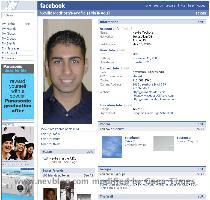European Union says Iran must stop jamming Internet, satellite broadcasts immediately
By Raf Casert, APMonday, March 22, 2010
EU: Iran must stop jamming Internet, broadcasts
BRUSSELS — Iran must stop jamming satellite broadcasting and censoring the Internet, the European Union said Monday, but the bloc has stopped short of threatening any action if Tehran doesn’t agree to it.
EU foreign ministers said in a statement that Iran must “put an end to this electronic interference immediately.”
Iran has ratified an international convention banning electronic interference with broadcasts yet still stepped up its Internet crackdown and surveillance amid a disputed presidential election last summer.
British Foreign Secretary David Miliband said that banning broadcasts such as the BBC and Germany’s Deutsche Welle highlights the authorities’ fear “of their people hearing the truth about what’s happening in their own country.
“It says a lot about the trust the Iranian government has in its own people. They’re not willing to hear them hear independent news. I think it’s very important that they open up the airwaves as soon as possible.”
The EU wants to take up the issue before the International Telecommunications Union.
“The interesting thing is that Iran wants to expand its satellite channels network around the world — that’s why the ITU is the best place to talk about that,” German deputy foreign minister Werner Hoyer said. “It is important that we show European solidarity and I think we can get that.”
Earlier this month, Iran said it dismantled several U.S.-backed opposition networks, which sought ways to circumvent controls on the Internet meant to deprive the opposition of its most crucial tool.
Iranian authorities have launched a broad clampdown on many Web sites, including blogs, independent news outlets and sites linked to opposition leader Mir Hossein Mousavi, who claims he was deprived of the presidency through fraud in the June election.
With anti-filtering software and the use of Web proxy sites, some Iranians have been able to circumvent those controls to browse YouTube, Facebook, Twitter and Farsi-language news sites that were blocked.
Tags: Brussels, Government Regulations, Industry Regulation, Iran, Middle East, Online Media, Online News Media, Youtube
